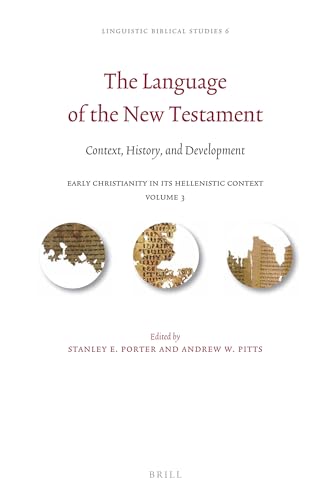Colossians and Philemon: A Handbook on the Greek Text
Written by Constantine R. Campbell Reviewed By Nijay K. GuptaDuring my research for my own commentary on Colossians (Smyth & Helwys, 2013), I counted over eighty commentaries on Colossians in existence—and that is only English works! Any new commentary series has to make it clear why someone who has personal or library access to dozens of commentaries on Colossians should buy or borrow yet another one. Fortunately, the new Baylor Handbook on the Greek New Testament series has just such a unique niche—it is a short guide through the grammar, syntax, and semantics of the original-language text. The series editor, Martin Culy, makes the claim that this would serve best as a “prequel” to the work of a regular (exegetical) commentary.
Probably any well-trained NT scholar could write such a volume, but Constantine R. Campbell proves himself to be especially qualified to comment on Colossians and Philemon because of two unique features of his work. First, Campbell has worked quite a bit in the past on Greek verbal aspect. Campbell is convinced that verbal aspect is encoded into the tense-forms, but not time. Campbell’s particular take on verbal aspect is unique (and explained at length in his book Basics of Verbal Aspect), but he reviews key ideas and terminology in the introduction. Obviously this perspective on verbal aspect is fully integrated in his comments on verbs throughout the book. While one may end up disagreeing with details of his verbal aspect theory, his conclusions about the understanding of individual verbs in Colossians and Philemon is nothing shocking and often reasonable and helpful.
The second unique feature of this book is Campbell’s expertise in the examination of “in Christ” language in Paul (argued and defended at length in his recent book Union with Christ). Rather than treating this prepositional phrase generically in a mystical or even a communal way, Campbell reads each instance contextually in a way that draws out the richness of the relationship and association with Christ as Paul intends in each instance (see p. 32 for a helpful example).
Two further beneficial features of this volume, in particular, can be mentioned. Campbell makes use of Steven Runge’s book Discourse Grammar of the Greek New Testament, which involves a function-based approach to Greek, explaining how certain tasks are accomplished by particular discourse features. Campbell utilizes Runge’s work especially when it comes to conjunctions and point-counterpoint sets. Also, one will find very handy text-critical comments in Campbell’s commentary.
Mostly due to the brevity of this work, I found a couple of particulars of this commentary problematic (though not fatally so). First of all, while Campbell sometimes does give extended comment, overall he offers his own syntactical preference (e.g., for a genitive noun or a prepositional phrase) without comment or inclusion of options. Perhaps the idea is that the stated preference is the most obvious one, but often enough I disagreed or felt another option was equally possible. One should know, then, that this is not the place to find penetrating syntactical discussion except on selective examples (unlike, e.g., Murray Harris’ EGGNT commentary on Colossians, which offers more explanation with more frequency). Second, I was surprised that Campbell did not point out when the (superfluous) appearance of a first person pronoun (with a verb) might be emphatic (see, e.g., pp. 6, 23).
For those students who have learned basic Greek grammar and syntax, it is a hugely beneficial exercise to spend time in a commentary like this (perhaps for a “reading” course in NT Greek). At the very least, patiently working through the Greek text one clause at a time forces the reader to slow down and think through everything logically and rhetorically. I warmly recommend this to anyone interested in studying Colossians and Philemon with a desire to examine the Greek text closely.
Nijay K. Gupta
Nijay K. Gupta
Northeastern Seminary
Rochester, New York, USA
Other Articles in this Issue
Too often people think of the Reformation in terms of an abstract theological debate...
Abstract: Evangelical Faith and the Challenge of Historical Criticism, edited by Christopher Hays and Christopher Ansberry, argues that evangelical scholars have failed to embrace historical criticism to the extent that they could and should...
Thomas Prince, editor of The Christian History—the first religious periodical in American history—could hardly have invented the Great Awakening, as Frank Lambert argues...
Theology is first and foremost about who God is and then about what he has done...
I would like to consider several elements in reviewing Bray’s work...







